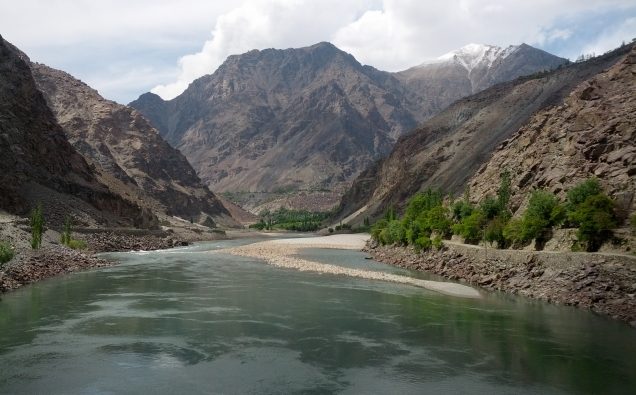
Featured Image shows Indus River in Kharmang District, Pakistan, Photo by Shahnawaz Zafar via Wikimedia Commons
Indian Prime Minister Narendra Modi has threatened to stop the flow of Indus river waters into Pakistan – in contravention of a World Bank- brokered treaty – as tensions between the two neighbors continue to harm South Asian security.
“Sutlej, Beas, Ravi – the water in these rivers belong to India and our farmers.It is not being used in the fields of Pakistan but flowing into the sea through Pakistan,” he said, addressing a rally in Punjab – an agricultural heartland.
“Now every drop of this water will be stopped and I will give that to farmers of Punjab and Jammu and Kashmir and Indian farmers. I am committed to this,” Modi, a controversial figure who has risen to power promising Hindutva ideology, said.
In this respect, he told the rally that a task force has been set up to ensure that “each drop of water” that flows out os Sutlej, Beas and Ravi reaches Punjab and Jammu and Kashmir.
Under the Indus Water Treaty, Pakistan and India – now two nuclear-armed powers – have been sharing water from rivers flowing into Pakistan.
But Modi hinted at India having a right to use all of the water.
“There is no reason that we cannot use our rights,” he said.
The Indus Waters Treaty between India and Pakistan, agreed in 1960, is a rare example of implementation of agreements between the two South Asian powers, as it has remained intact during periods of hostilities and wars.
The treaty, signed by Prime Minister Jawaharlal Nehru and President Ayub Khan in Sept 1960, stipulates that water of six rivers — Beas, Ravi, Sutlej, Indus, Chenab and Jhelum — are shared between the two countries.
Modi has been threatening Pakistan with water wars as a standoff between the two countreis over Kashmir has worsened over the past several months.
Islamabad has said any revocation of the Indus Waters Treaty would be a ‘hostile’ act against Pakistan.
Recently, Adviser to the Prime Minister on Foreign Affairs Sartaj Aziz earlier said that if India tries to interrupt water flows into Pakistan, it will not only violate the Indus Waters Treaty, but also set a regional state practice.
Analysts say such a precedent would threat India’s other neighbors like Bangladesh, and serve as an example for China to suspend water flow of the Brahmaputra river from its territory.
















